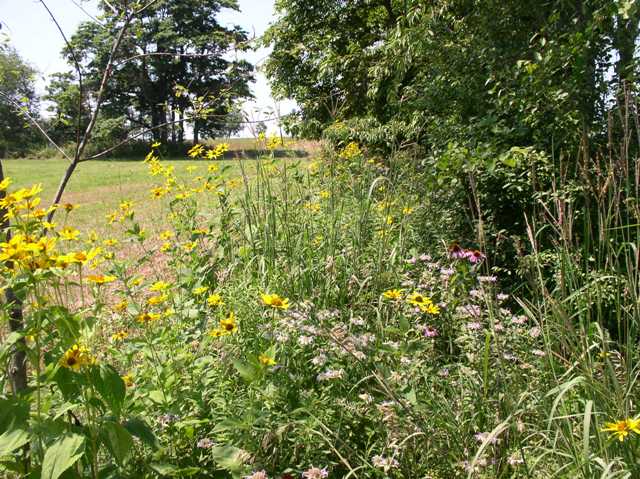In one of the largest agricultural studies conducted to date, an international team of 50 scientists from 17 different countries investigated the vital role that wild insects play in the pollination of fruit, seed, nut and coffee crops. Their findings were surprising and suggest that domesticated honey bees aren’t as effective at pollination as wild insects. Hence, better protections for wild pollinators may help to boost crop yields. The study was published on February 28, 2013 in an online edition of the journal Science.

The pollination of agricultural crops by diverse insects such as bees, flies, beetles and butterflies is a very valuable ecosystem service. To compensate for the loss in diversity and abundance of wild pollinators across agricultural landscapes, farmers now pollinate many of their crops with managed colonies of honey bees. Honey bees are generally viewed as an effective substitute for the loss of wild pollinators. Not so, the February 28 Science paper suggests.
To measure how effective honey bees and wild insects are at pollinating crops, scientists measured how often these pollinators visited flowers blooming within agricultural landscapes and whether or not those visits resulted in successful pollination. Successful pollination was indicated by the amount of pollen deposited on the flower and the percentage of flowers setting into mature fruit and seeds. For the study, they sampled 600 agricultural fields on every continent except Antarctica. The fields were composed of 41 different types of fruit, nut, seed and coffee crops. They did not study crops that are primarily pollinated by the wind.
The results showed that visits from wild insects enhanced pollination in 100% of the crops studied. However, visits from honey bees only enhanced pollination in 14% of the crops. Furthermore, fruit set was enhanced twice as much by visits from wild insects as compared to honey bees. These results suggest that domesticated honey bees can only supplement, but not substitute for, the pollination services provided by wild insects.
The study concludes that providing natural habitat for wild pollinators could be a valuable strategy to enhance global crop yields.

Lucas Garibaldi, lead author of the study and a scientist affiliated with Black River National University in Argentina, commented on the findings in a news release. He said:
Our study shows that losses of wild insects from agricultural landscapes impact not only our natural heritage but also our agricultural harvests. We found that wild insects consistently enhanced the number of flowers setting fruits or seeds for a broad range of crops and agricultural practices on all continents with farmland. Long term, productive agricultural systems should include habitat for both honey bees and diverse wild insects. Our study prompts for the implementation of more sustainable agricultural practices.
Bottom line: Fifty scientists from 17 countries investigated the vital role that wild insects play in crop pollination. They sampled 600 agricultural fields on every continent except Antarctica. Their results, published in the journal Science on February 28, 2013, suggest that domesticated bees are less effective than their wild counterparts at pollinating fruit, nut, seed and coffee crops. The study concludes that providing natural habitat for wild pollinators could be a valuable strategy to enhance global crop yields.











